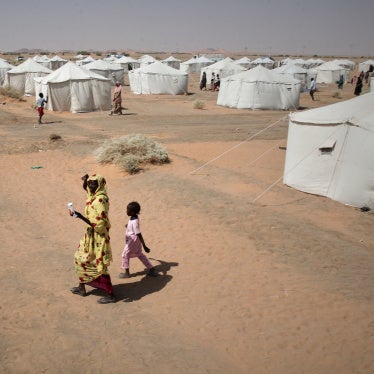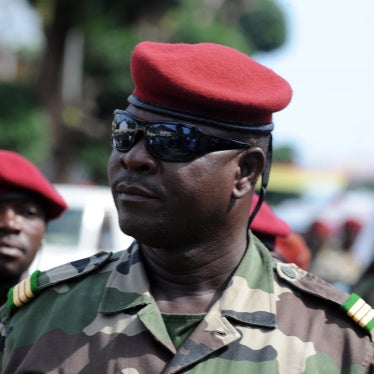(New York) - The Rwandan government is using the pretext of security to cover human rights abuses against Rwandan citizens, Human Rights Watch said in a report released today. The report details cases of assassination, murder, arbitrary detention, torture and other abuses perpetrated chiefly by soldiers of the Rwandan Patriotic Army, and by members of a government-backed citizens' militia called the Local Defense Force.
This report shows that human rights abuse in Rwanda goes beyond the ethnic conflict between Hutu and Tutsi," said Alison Des Forges, consultant to the Africa Division of Human Rights Watch. "The Tutsi-led government is now targeting Tutsi survivors of the 1994 genocide because they are supposedly political opponents."
In the past, the Rwandan authorities often discredited their enemies by accusing them of being genocidal killers or insurgents. Now, according to the Human Rights Watch report, they also accuse them of being monarchists who want the former king to return to power. The king, Kigeri V Ndahindurwa, was ousted by a Hutu-led revolution forty years ago and currently lives in exile in the United States.
Among other cases, Human Rights Watch examines the assassination of Assiel Kabera, former counselor to the president and a leader of the community of genocide survivors.
The report says Joseph Kabuye Sebarenzi, former speaker of the National Assembly, fled Rwanda because he feared assassination after having been accused of supporting the return of the king. Sebarenzi, who was forced to resign in early January, is a Tutsi with strong support in the community of genocide survivors. Meanwhile, a well-known Tutsi businessman, Daniel Ngenzi, has been imprisoned since August 1999 on charges of aiding RPA soldiers, themselves genocide survivors, to leave the country.
Rwandan military intelligence operatives recently forced five Tutsi, mostly soldiers or former soldiers, to return to Rwanda against their will after they had fled to neighboring countries. Authorities have linked these cases to the existence of a supposed "army of the king." In another surprising development, authorities arrested some forty Hutu in the usually anti-monarchist northwest on charges of belonging to a secret monarchist association.
Human Rights Watch also documents the existence of illegal places of detention and presents cases of persons who have "disappeared" into such places and been held incommunicado for months.
Human Rights Watch details killings and other abuses committed by members of the Local Defense Force, civilians recruited and armed by the government. Supposedly under the supervision of local authorities, the members of the Local Defense Force commit abuses without punishment in those areas where authorities are afraid of them or have benefitted from their crimes.
The Human Rights Watch report documents the massacre of thirty-one Tutsi by insurgents at Tamira in December 1999, a case which demonstrates the continuing threat to civilians by armed groups in the region.
"It's true that the Rwandan government faces some risk of attack by armed groups, and some dissent within its population," said Des Forges. "But neither can be used to justify abuses against its own citizens."








